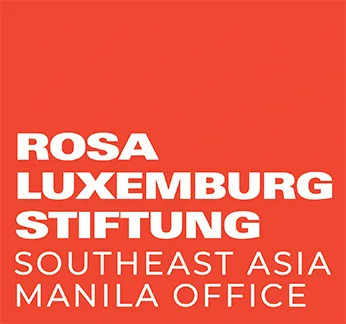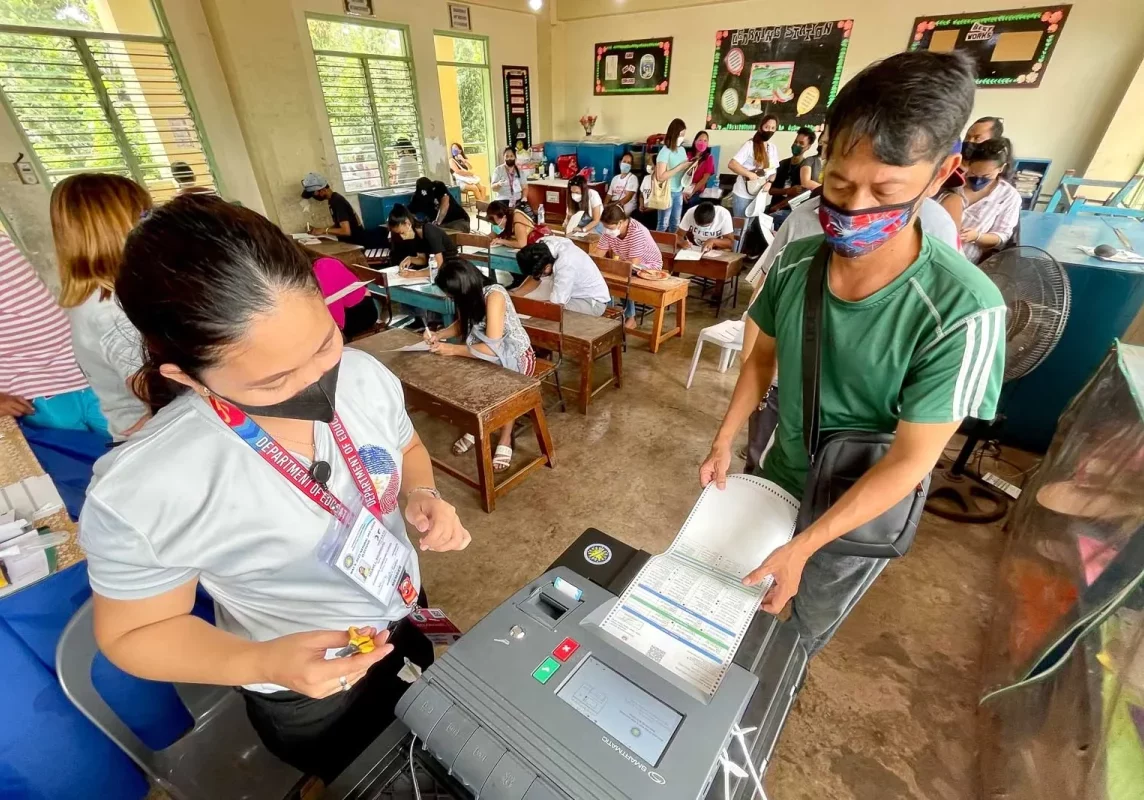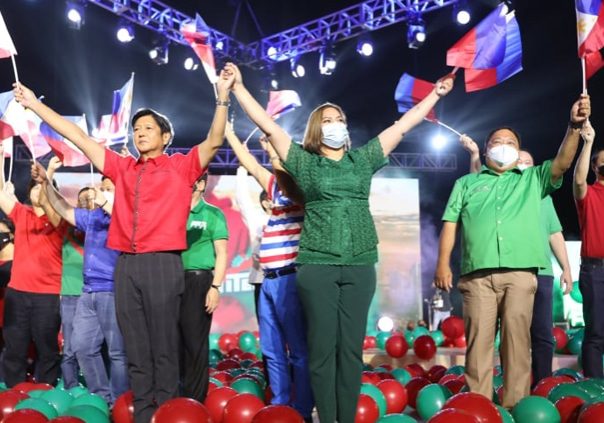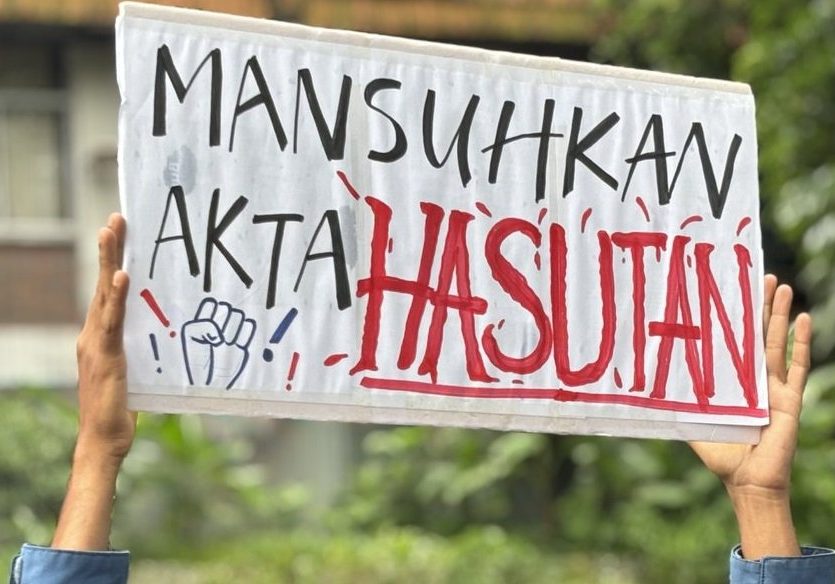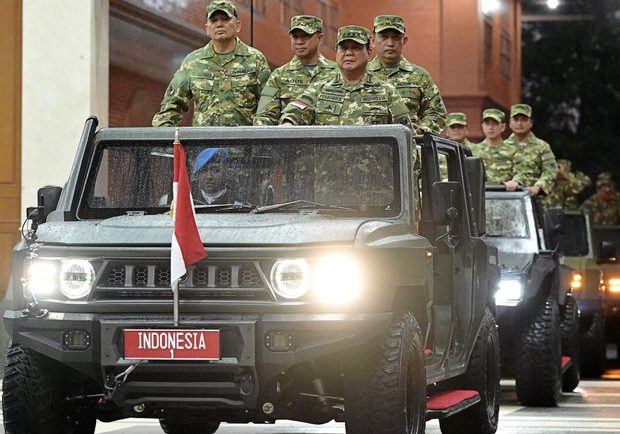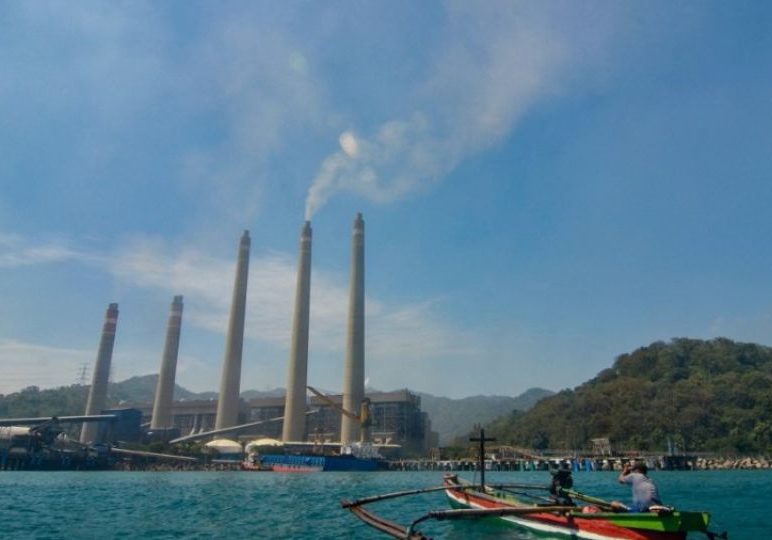Share
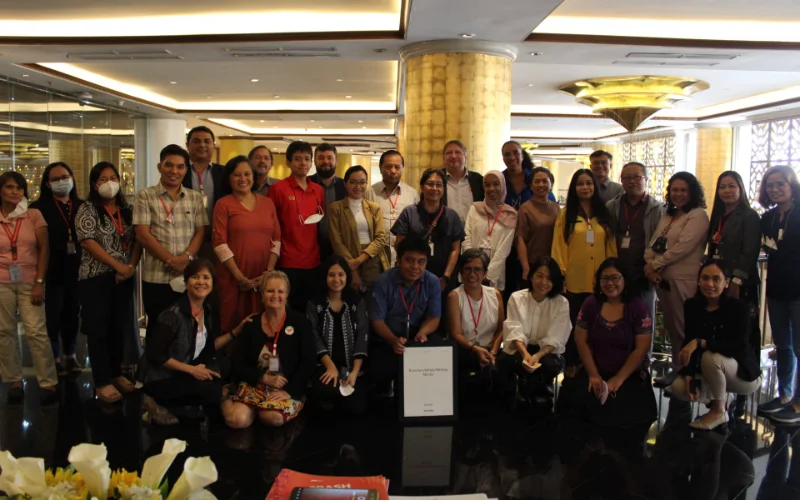
Opening New Frontiers: Expanding Global Solidarity in an Uncertain and Tangled World
How can we (re)build global solidarity amidst a volatile, tangled, and unpredictable world disrupted by multidimensional crises in an increasingly authoritarian neoliberal capitalist relations and ecological devastation? This has been the underlying question in the workshop held during the office opening event of the Rosa Luxemburg Stiftung (RLS) Southeast Asia Office in Makati City, Philippines, on August 13-14, 2022. Around forty RLS partners from Indonesia, Malaysia, the Philippines, Thailand, and Vietnam affiliated with civil society organizations such as trade unions, environmental groups, media organizations, feminist movements, and peoples’ organizations joined the almost two-day event. One whole day was devoted to a workshop discussing Boris Kanzleiter’s publication in 2021 entitled “Global Solidarity for an Internationalism of the Future”[1] as a basis for tackling hard questions on the future of Left movements worldwide in the aftermath of a devastating global pandemic. The workshop contributed to building bridges among RLS partners in Southeast Asia, Germany, and beyond.
Global Solidarity: ‘Build Two, Three, or Many New Internationalisms’
Kanzleiter’s paper on global solidarity analyzed the multidimensional crisis located within the power relations in today’s intensifying neoliberal finance capitalism, namely: “(1) the crisis of finance-dominated accumulation; (2) the social-ecological crisis; (3) permanent crises of reproduction; and (4) the crisis of parliamentary democracy”[2]. The intensification of market financialization, liberalization, and privatization under neoliberal capitalism resulted in economic and social inequalities intensifying through extractive capitalism, leading to a socio-ecological crisis. The trend towards market dominance and privatization of public services has led to the crisis of social reproduction wherein millions of people are deprived of the right to housing, education, health, and other social protection mechanisms. The uneven development across the globe likewise plunged nation-states into political turbulence, seeing the rise of anti-democratic, right-wing, and authoritarian leaders worldwide in recent years.
The fate of the democratic and socialist life lies in radical and global solidarity that emphasizes crafting a counter-hegemonic project based on shared and collective goals or socialist visions from left and progressive movements despite their differences and differing perspectives. Radical solidarity is anchored on “creating solidarity with precisely those people who do not share one’s factory, one’s milieu, one’s gender, or one’s ethnic attribution.”[3] According to Kanzleiter, global solidarity can only be understood as striving towards “universal emancipation,” which means “overturning all relations in which the human being is humiliated, enslaved, abandoned, despised,” as quoted from Marx.[4]
In a video interview presented online in the workshop, Boris Kanzleiter expounded on his concept of solidarity as ”understanding the needs of others,”’ explaining that there can only be global solidarity if there is solidarity of struggles among trade unions, women, peasants, progressive intelligentsia, the subaltern, among others. The old internationalism (20th century) featured struggles towards decolonization, but the Left movements in the East, North, and South have become static and had to contend with authoritarian communism. A new international politics unfolded in 1989 as the capitalist production relations in many countries intensified neoliberal capitalism at the global level. Left and progressive movements were weakened, state power was lost in socialist countries, and the lack of balance of forces intensified. New strategies need to be crafted in this context towards building new internationalism. However, how to address challenges in socialist struggles lies in the process of struggle, such as fighting authoritarianism and linking nationalist struggles against extractive capitalism.
In the context of building new internationalism, Kanzleiter proposed the concept of “pluralist internationalisms” built upon a strong recognition of the voices from the global south. The many new internationalisms can be anchored on eight strategic approaches, namely:
- For a Transformative and Socialist Green New Deal
- Peace Policy, New Multilateralism, and Decolonization
- World Economic Relations Formed in Solidarity for Global Justice
- Food Sovereignty
- Control, Regulation, and Socialization of Transnational Corporations
- Struggles for Global Social Rights and Labour Rights
- The Transnational Feminist Movement
- Migrants’ Rights and Solidarity Cities
The workshop: Global Solidarity in Practice
The almost two-day workshop comprised a half-day morning discussion on Kanzleiter’s paper, an afternoon of small group discussions, and an interactive board game on solidarity in practice. The last hour of the event was spent viewing the RLS office and a mini-paint exhibit of a local artist.
Liliane Danso-Dahmen, Director of RLS Regional Office Southeast Asia, Manila, and Gerd-Ruediger Stephan, Vice-CEO of RLS Berlin, formally opened the workshop and welcomed the participants. Ms. Liliane set the tone of the discussion, expressing that building international solidarity needs to confront the intensification of the neoliberal capitalist model, which threatens the lives and work of many people worldwide. She urged Left movements to aspire to global solidarity in the struggle towards strengthening social rights, ecological sustainability, decent work in local production chains, and fair trade.
Mr. Stephan provided a brief history and overview of the Rosa Luxemburg Foundation as an organization with a global presence, a political think-tank of the Left, and a political education institution anchored on democratic socialism. Since its founding in 1990, the RLS has started with political analyses and actions supporting labor rights, and anti-imperialist and anti-war movements. As a political institution, the RLS has not shied away from ideological debates among the Left and has remained committed to socialist pluralism versus democratic centralism. The director of the RLS Hanoi Office, Philip Degenhardt, joined the workshop.
To kick off the discussions, a prominent political figure in the Vietnamese Communist Party and currently the Vice President of the Vietnam Peace and Development Foundation, Tran Dac Loi, discussed Vietnam’s revolutionary struggles against imperialism since French colonialism in Asia. Mr. Loi traced the Vietnamese people’s struggles for independence and socialist life since the Second World War period. Three political experts and scholar-activists were invited to respond to Kanzleiter’s strategic approaches, particularly on the (a) Transformative and Socialist Green New Deal, (b) Control, Regulation, and Socialization of Transnational Corporations, and (c) Migrant Rights and Solidarity Cities.
Climate Justice as Part of the Left Struggle
Atty. Antonio La Vina, former dean of the Ateneo University School of Government, commented that Kanzleiter’s strategic approach to building a transformative and socialist Green New Deal is faithful to the revolutionary ideas of Rosa Luxemburg in the “struggle for the good life for the many.” The struggle for climate justice touched upon various levels: global, class, social, and nature. At those levels, there is a need to recognize the struggles of rural people, peasant movements, communities, and indigenous peoples. According to La Vina, the debates on ‘Just Transition’ or the shift towards renewable energies must respond to extractivist capitalist relations and the need to emphasize the welfare of the working people, particularly the vulnerable and marginalized workers (i.e., informal workers). The main challenge for the international Left movement in contemporary times is how to craft a socialist vision that is nature-based, providing solutions to the ecological crisis we are facing now.
Global Solidarity in the Context of Indonesia’s Political Economy
Muhammad Ridha of the Working People Party Indonesia responded broadly to Kanzleiter’s concept of global solidarity from the perspective of Indonesia’s political economy. Ridha’s discussion took off from Indonesia’s political-economic challenges, such as underdevelopment, uneven social formation, and capitalist class using the state to broaden extractive capitalism and overcome its imperialist structures from US hegemony. While Kanzleiter’s paper challenges the Left towards a left-wing strategy in the context of a multidimensional crisis generated by neoliberal capitalism, Ridha contends that without discussing the role of the nation-state, which is lacking in the paper, left-wing politics cannot go anywhere. Likewise, there is no discussion on ‘radical politics’ in which ‘pluralist internationalism’ cannot be realized if the debates don’t address conflict among social classes and conflict among left movements.
Social and Political Exclusion of Migrant Workers
In response to Kanzleiter’s strategic approach to migrant rights and solidarity cities, Reiko Harima, Regional Director of Mekong Migration Network, focused her comments on the social exclusion of migrant workers in general and the undocumented, stateless, and semi-stateless peoples in the ASEAN region. From a bottom-up approach, Reiko discussed the main issues of migrant workers in the region as a contribution to Kanzleiter’s analysis. Among the issues raised relating to the plight of migrant workers are:
(a) local initiatives for the protection of stateless or semi-stateless and undocumented migrant workers found gaps in citizenship issues, cases of extortion, and a false sense of safety;
(b) access to justice for the undocumented remains constrained as the undocumented are treated as illegals and cannot make complaints to the police lest they jeopardize their safety;
(c) unequal mobility of migrant workers as this is linked to class and social inequalities (i.e., inequality of skilled and unskilled migrant workers); and
(d) local cities are arenas to strengthen social protection, but challenges remain in enforcing the portability of social protection in the region.
Thus, it is important to have an opportunity to reality check that until the present, the majority of migrant workers have limited political rights, no access to social protection or access to health care services, and that social security remains difficult to attain since it is about a social contract between workers and state based on trust.
Voices from the Global South on Building New Internationalisms
To listen to the participants' perspectives from different Southeast Asian countries, the small group discussions tackled the hard questions of how the notion of ‘global solidarity’ become relevant to their communities and their solidarity practices on the ground. It was discussed that solidarity becomes relevant when seen in the context of issues on the ground. However, it is important to look at the intersectionality of issues, the diversities in contexts, and interests. Thus, there is a need to be emboldened to make linkages and bypass the capitalist mode of relations based on the needs of communities.
More importantly, the workshop asked the participants to reimagine an internationalist approach to global solidarity relevant to the Southeast Asian context and what the elements of the new internationalism are.
Among the perspectives that emerged included points on the elements of new internationalism. This included a call for a deeper analysis of existing systemic contradictions and their root causes, primarily driven by global capital. There was also an emphasis on recognizing the limited control over financial and market systems and the need for tangible alternatives in development, democracy, and organizational strategies. Acknowledging the diversity of movements from various contexts and locations, understanding power dynamics, and promoting a collective sense of ownership are also central themes in these proposals.
Meanwhile, there were also specific proposals on enhancing solidarity between the global north and south and leveraging digitalization for international solidarity by sharing stories of struggle. The participants suggested examining Latin America's experiences and perspectives for new insights. Building a critical mass was also emphasized as crucial for institutionalizing new internationalism. Emphasis was also given to listening to workers' experiences, such as migrant workers, often overlooked by trade unions, to broaden the scope of understanding and support.
Solidarity Practice on the Ground
Finally, the theoretical and practical discussions on global solidarity found a mode of application through a disruption board game tackling the hard issues of food sovereignty. The disruption board game was developed by the Action Group on Erosion, Technology and Concentration or ETC Group, headed by Elenita Dano as Asia Director. In an innovative and imaginative method, the disruption board game tackled the conflicts and confrontation of contending forces surrounding the politics of agriculture and food sovereignty. The game extends knowledge and learning process in a fun and non-confrontational way yet raises awareness on the importance of food sovereignty. Perhaps more innovative methods in addressing conflicts and debates within the Left movement may contribute to moving towards genuine global solidarity.
The workshop and office-opening events hit many birds with one stone. The discussions tackled emergent questions on the fate of the Left amid multi-layered crises in the context of intensifying authoritarian and neoliberal capitalism. The space has brought together Left activists from different Southeast Asian countries with diverse perspectives and contexts. Yet, simultaneously, the coming together has evoked feelings of solidarity and strengthened resolve to advance democratic socialist principles. A challenge has emerged for the Left movements towards a better world for the many: building a socialist vision based on ecologically sustainable, more equal, and democratic societies upon which global solidarity is a key element in building new internationalisms.
Reference
Boris Kanzleiter, “Global Solidarity for an Internationalism of the Future,” Rosa-Luxemburg-Stiftung Southeast Asia, Manila Office, June 2021.
[1] Boris Kanzleiter, “Global Solidarity for an Internationalism of the Future,” Rosa-Luxemburg-Stiftung Southeast Asia, Manila Office, June 2021. Available at: https://www.rosalux.de/fileadmin/rls_uploads/pdfs/Themen/Globale_Solidaritaet/6-21_Onl-Publ_Global_Solidarity.pdf
[2] Kanzleiter, “Global Solidarity for an Internationalism of the Future”, p.5
[3] Kanzleiter, “Global Solidarity for an Internationalism of the Future”, p.7
[4] Kanzleiter, “Global Solidarity for an Internationalism of the Future”, p.8
